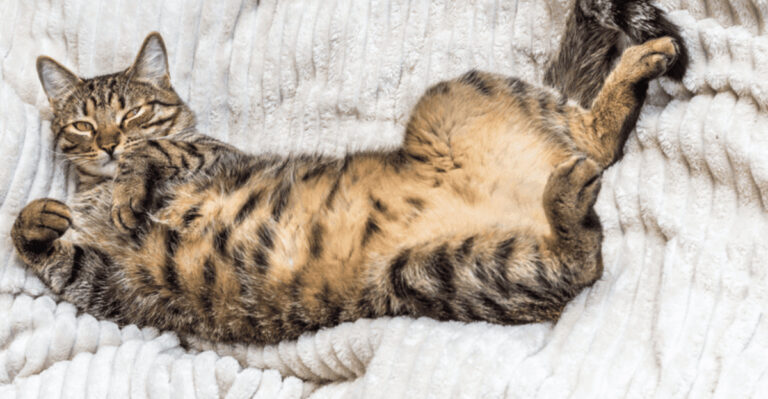16 Reasons Why Owning A Cat Might Be A Bad Idea
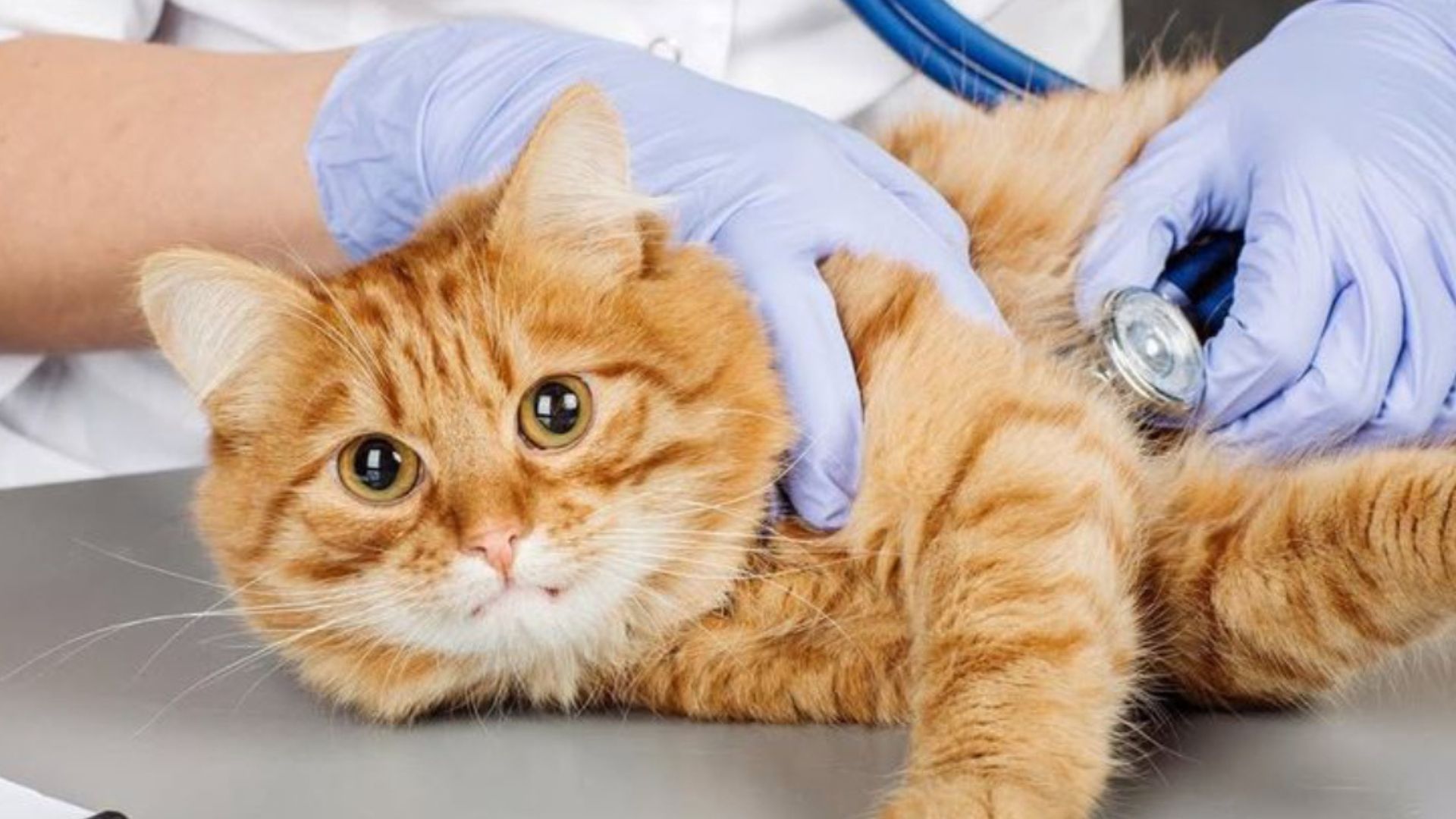
Owning a cat can bring joy and companionship into one’s life, but it’s not without its challenges. Cats, though adorable, come with their own set of quirks and requirements that might not align with every potential pet owner’s lifestyle.
While their mysterious nature and independence can be appealing, there are several reasons why having a feline friend might be more trouble than you expect.
Whether you’re allergic to fur or simply value your personal space, understanding these potential downsides can help you make an informed decision before bringing a fluffy companion into your home.
1. Allergy Alert
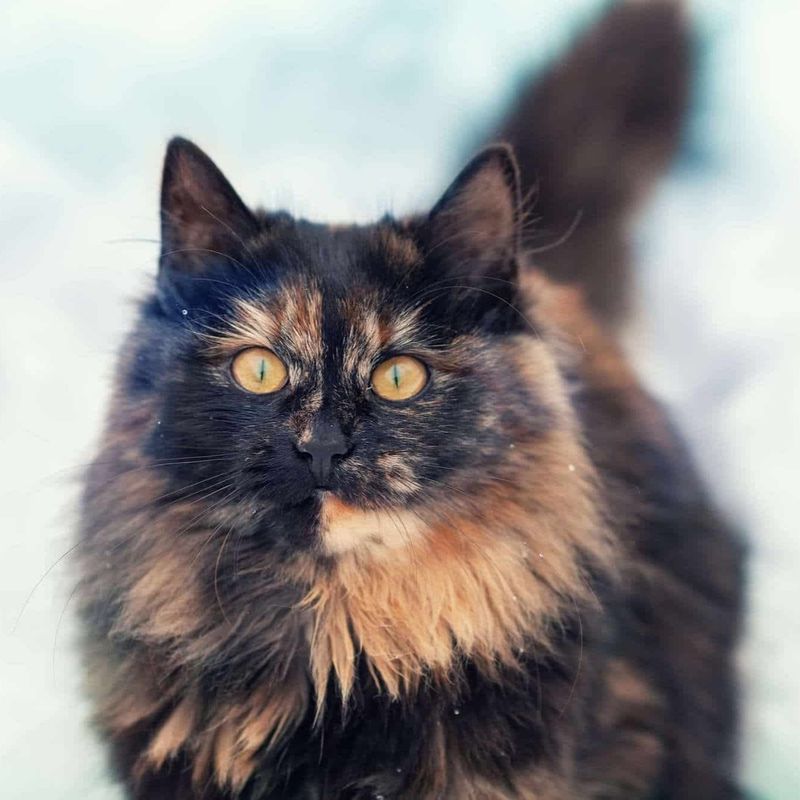
Cats are cute, but if you find yourself sneezing incessantly, it might be due to their dander. Cat allergies are more common than you might think, affecting a significant portion of the population. Dander, which is a combination of feline skin cells and saliva, can trigger those annoying allergic reactions.
Living with a cat when you have allergies can turn into a daily struggle. Constant sneezing, itchy eyes, and a runny nose are no fun. You might end up having to choose between your health and your adorable feline friend. Not everyone can afford the luxury of allergy medications or frequent doctor visits, which adds to the dilemma.
Moreover, it’s not just you who suffers. Your cat may feel neglected when you’re always keeping your distance. This can lead to a strained relationship, where neither party is truly happy. Before adopting a cat, consider getting tested for allergies to save both you and the potential pet from future discomfort.
2. Scratched Furniture
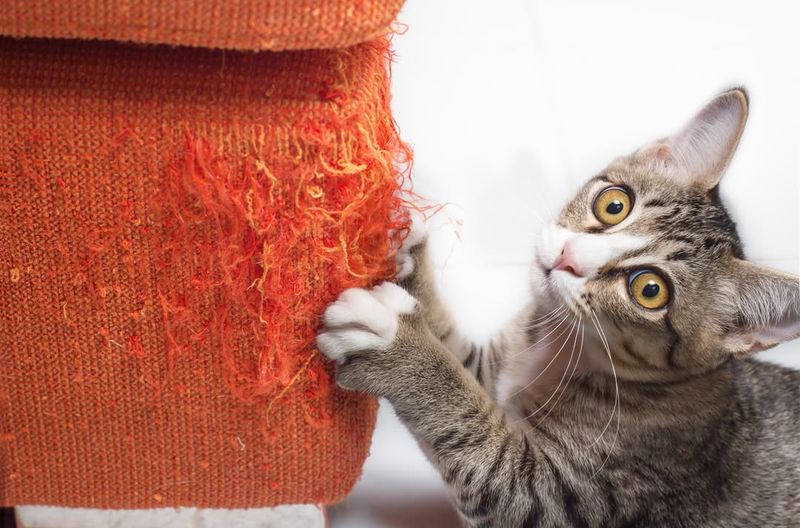
Your brand-new couch may become a scratching paradise for your feline friend. Cats have a natural instinct to sharpen their claws, and unfortunately, your furniture often becomes the victim. No matter how many scratching posts you provide, your sofa might still look like a post-apocalyptic ruin.
The frustration doesn’t end with just couches. Chairs, curtains, and even wooden furniture can be targeted by your cat’s need to scratch. This habit isn’t just destructive; it can also be costly. Replacing or repairing furniture can quickly add up, draining your wallet faster than you can say “meow.”
Training a cat to avoid scratching furniture is often easier said than done. While deterrent sprays and protective covers might help, they require consistent effort and might not be foolproof. If you cherish your home decor, think twice before allowing a cat to turn your living room into their personal playground.
3. Litter Box Odors
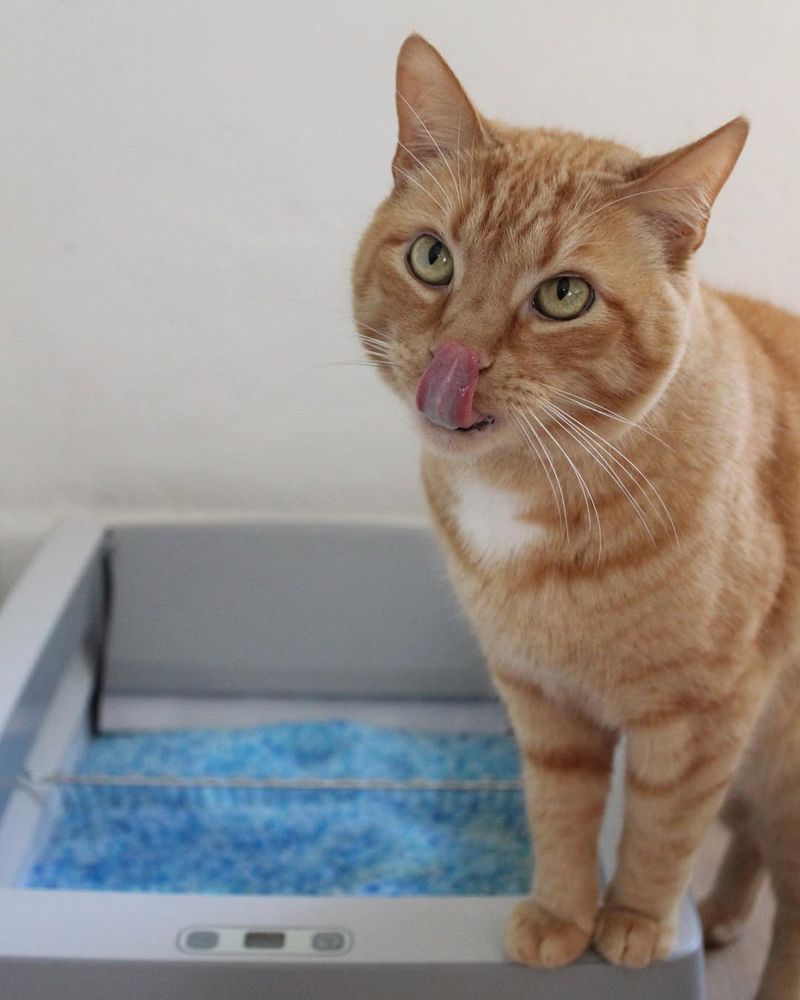
A cat’s litter box can be a source of unpleasant odors, no matter how frequently you clean it. The smell of cat urine is notoriously strong and can linger, creating an unpleasant atmosphere in your home. Guests may notice it too, which can be embarrassing.
Keeping the litter box fresh requires more than just daily scooping. Specialized litter, odor-neutralizers, and regular cleaning are essential to manage the smell. Still, some cats are picky about their litter box and may refuse to use it if it doesn’t meet their standards.
Moreover, the location of the litter box is crucial. It needs to be somewhere accessible to the cat but not too prominent in your living space. Balancing these needs can be tricky, and failure to do so might result in accidents around the house. If you’re sensitive to odors, a cat’s litter box might be a dealbreaker.
4. Nighttime Shenanigans
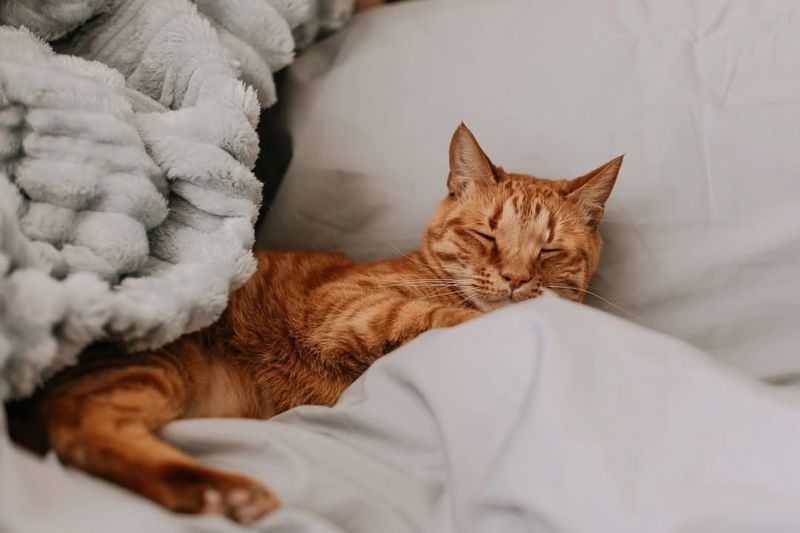
Cats are nocturnal creatures, often becoming active when you’re ready to sleep. If you’re a light sleeper, your cat’s nightly antics can be disruptive. From knocking over objects to running around the house, their energy seems boundless when the sun goes down.
These nocturnal activities can lead to sleepless nights for you. The sound of a vase crashing to the floor at 3 a.m. isn’t exactly soothing. And if your cat decides to pounce on your feet while you’re trying to sleep, you might find yourself wide awake and frustrated.
While some cats can be trained to adjust their sleep schedule, it’s not guaranteed. You may need to invest in blackout curtains or white noise machines to get a good night’s sleep. If you treasure your slumber, a cat’s nighttime shenanigans might be a dealbreaker.
5. Vet Visits
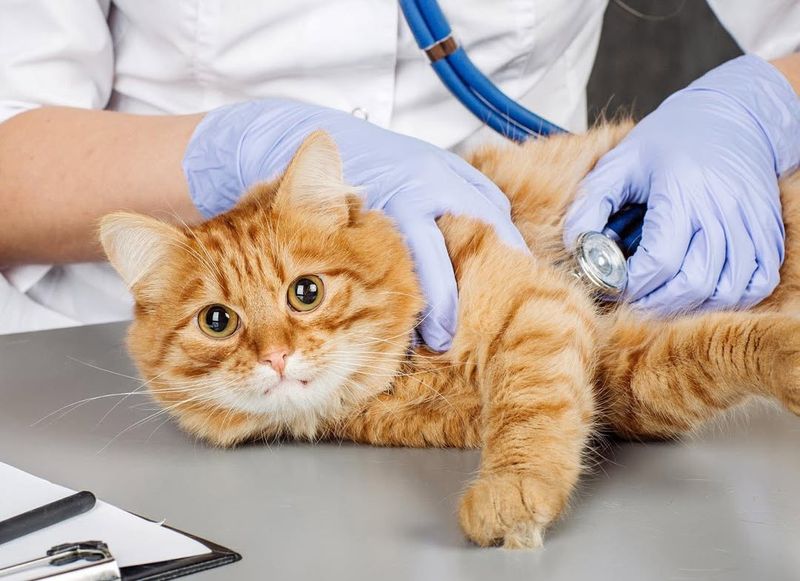
Regular vet visits are part and parcel of responsible cat ownership, but they can be a significant expense. From vaccinations to check-ups, these trips can quickly add up, especially if your cat develops health issues.
Beyond the financial aspect, getting your cat to the vet isn’t always a walk in the park. Cats are notoriously resistant to carriers, and the journey itself can be stressful for both you and your pet. The vet’s office, with its strange smells and sounds, might cause anxiety for your feline friend.
Additionally, cats may require specialized care as they age, leading to more frequent vet visits and additional costs. Pet insurance can alleviate some financial burdens, but it’s not always affordable for everyone. If you’re not prepared for the responsibility and cost of regular vet care, owning a cat might not be the best choice.
6. Shedding Everywhere
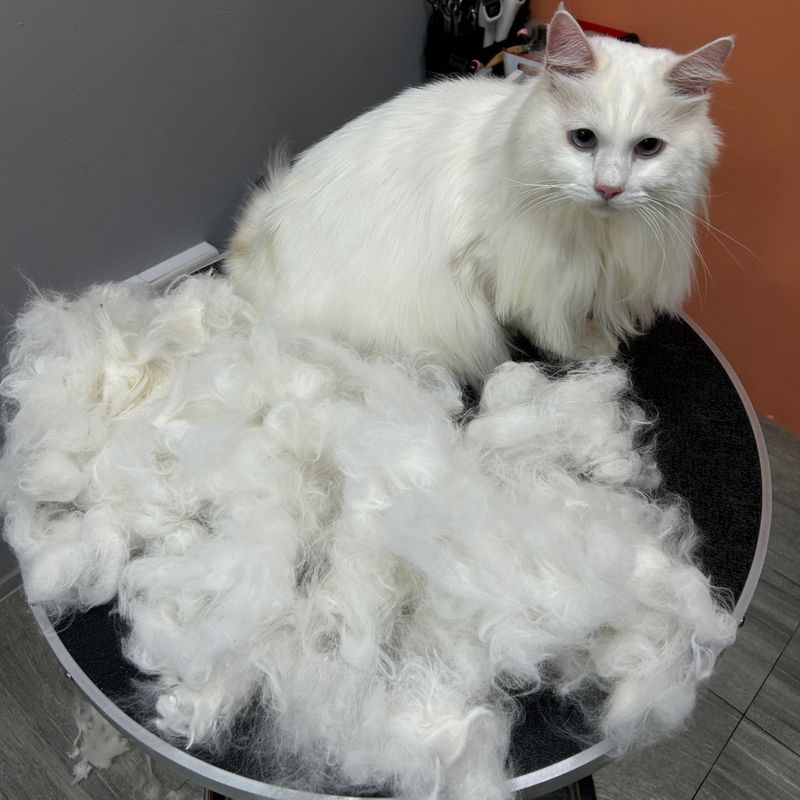
Cats, especially long-haired breeds, shed fur constantly, leaving a trail wherever they go. Your clothes, furniture, and even your food might become fur magnets, requiring daily cleaning.
Regular grooming can mitigate the shedding, but it’s not a foolproof solution. Some cats detest being brushed, making the task even more challenging. You might need to invest in lint rollers and special vacuum attachments to keep your home fur-free.
Moreover, shedding isn’t just an aesthetic issue; it can exacerbate allergies and respiratory issues for sensitive individuals. Keeping a clean home requires constant vigilance, and not everyone has the time or energy for that. If you’re a neat freak or have allergies, a shedding cat might drive you up the wall.
7. Costly Care

Caring for a cat can be surprisingly expensive. From premium cat food to toys and accessories, the costs can add up quickly. While budgeting can help, unexpected expenses like vet bills or special dietary needs can throw your finances into disarray.
Feeding your cat high-quality food is essential for their health, but it comes at a cost. Additionally, cats require regular vaccinations, flea treatments, and occasional grooming, all of which contribute to the overall expense.
Moreover, if you decide to travel, you’ll need to arrange for pet care, which can be costly. Whether it’s hiring a pet sitter or boarding your cat, these expenses are often overlooked. Before adopting a cat, consider if your budget can accommodate these ongoing costs without causing financial strain.
8. Independent Nature
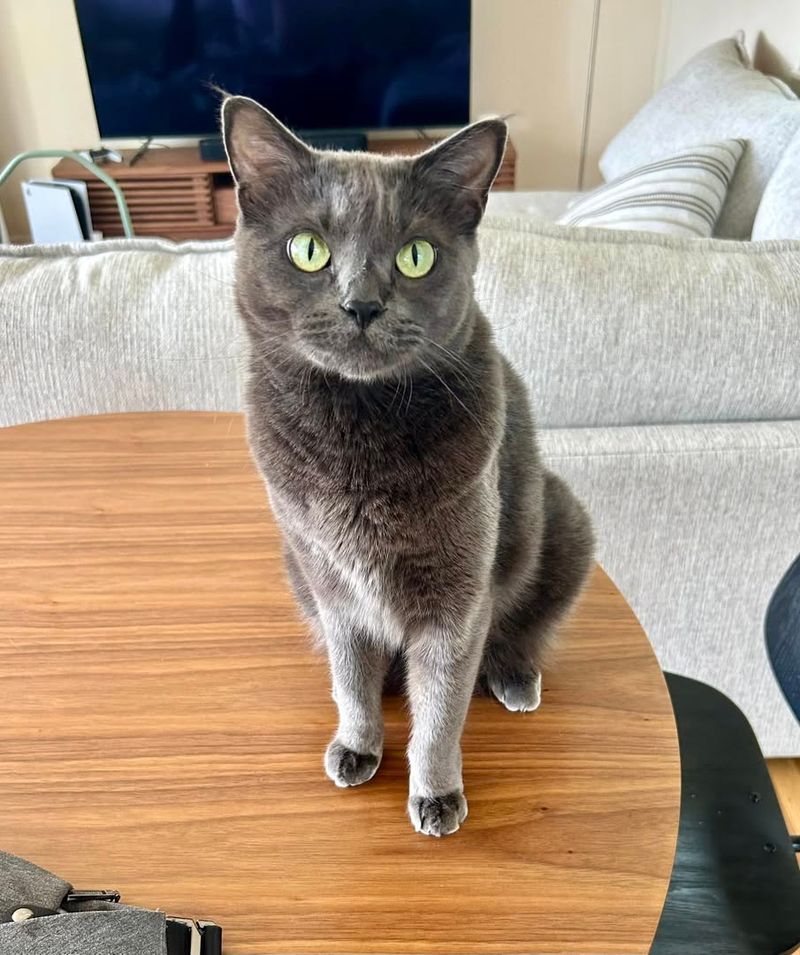
Cats are known for their independent nature, which can be both a blessing and a curse. While some people appreciate a pet that doesn’t require constant attention, others might find this aloofness disheartening.
Unlike dogs, cats might not greet you enthusiastically at the door. They often prefer solitary activities, like napping or watching the world go by from a windowsill. If you’re looking for a pet that provides constant companionship, a cat might not fulfill that role.
Furthermore, a cat’s independence can make it difficult to train them or gain their attention. This autonomy is a double-edged sword; while it allows for freedom, it can also lead to a lack of bonding. If you’re seeking a pet that craves interaction, a cat’s independent nature might not meet your expectations.
9. Travel Restrictions
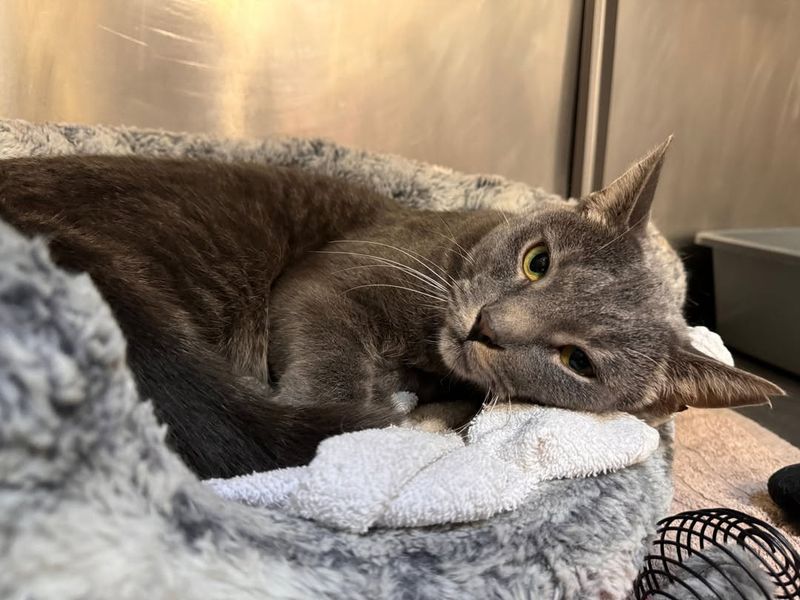
Owning a cat can limit your travel plans. Spontaneous getaways become complicated when you have a feline friend to consider. Arranging pet care requires planning and often incurs additional costs.
Cats are creatures of habit, and changes in their environment can be stressful. Leaving them in a new place or with unfamiliar people might lead to anxiety and behavioral issues. This makes finding a reliable pet sitter or boarding facility essential, but not always easy.
Furthermore, if you’re considering taking your cat along, be prepared for a challenging experience. Cats usually dislike travel, and long journeys can be uncomfortable for them. If you love to travel frequently, owning a cat might not fit seamlessly into your lifestyle.
10. Early Mornings
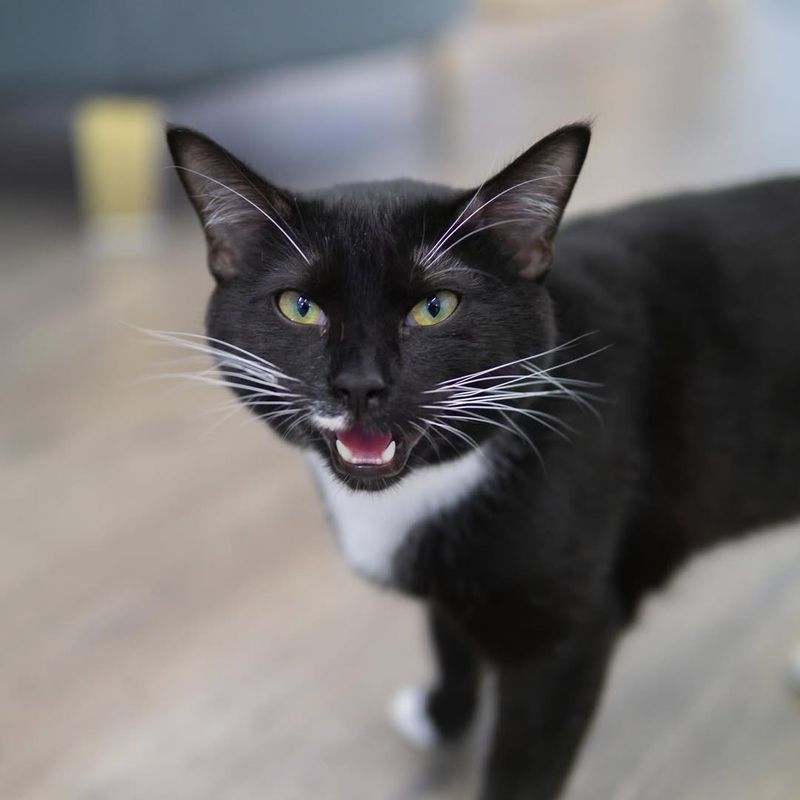
Cats often decide that dawn is the perfect time to demand your attention. Whether it’s for breakfast or playtime, their early-morning antics can disrupt your sleep.
Waking up to a cat meowing loudly or pawing at your door isn’t everyone’s idea of a pleasant morning. This behavior can be challenging to change, as cats are creatures of habit and have their own schedules.
Adjusting to your cat’s morning routine might mean sacrificing your lazy weekend lie-ins. If you’re not a morning person, a cat’s early wake-up calls might not be the best fit for your lifestyle.
11. Escape Artists
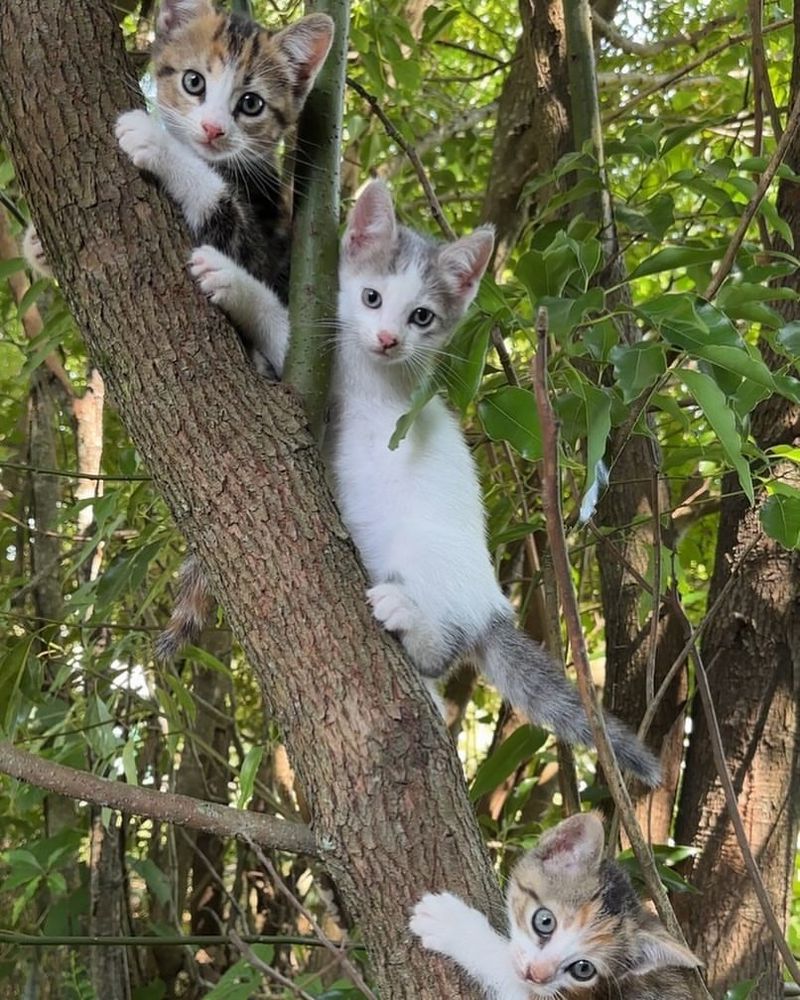
Cats are notorious escape artists, always looking for a way to explore the great outdoors. If your home isn’t cat-proofed, you might find yourself in a constant battle to keep them from dashing out.
Even indoor cats can develop a strong curiosity about the world beyond the window. A door left ajar or a slightly open window might be all they need to embark on an adventure. This can lead to stress and anxiety, as you worry about their safety outside.
Moreover, outdoor dangers like traffic, predators, and diseases pose significant risks to your cat’s well-being. If escape attempts become frequent, your peace of mind could be compromised. Owning a cat means being vigilant about doors and windows to prevent any great escapes.
12. High Maintenance
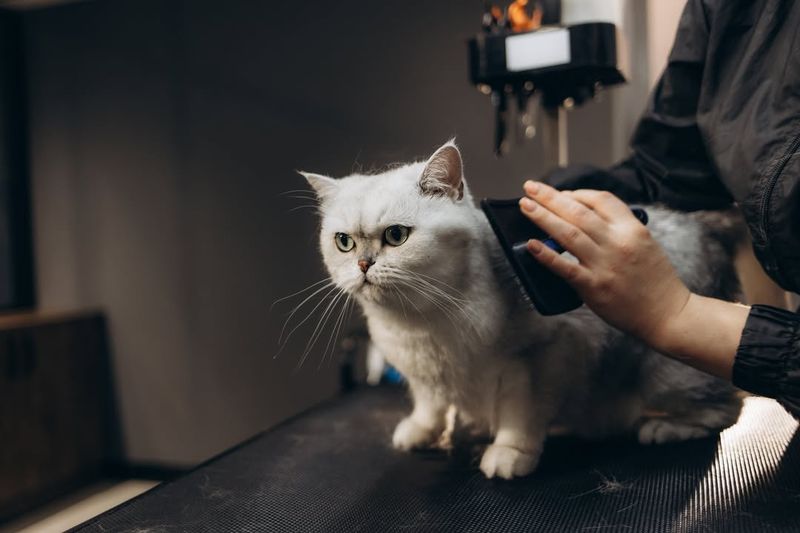
Some cats, especially long-haired breeds, require regular grooming to keep their coats in top condition. This can be a time-consuming task, especially if your cat isn’t fond of being brushed.
Matting and tangles can lead to skin issues and discomfort for your cat. Regular grooming helps prevent these problems, but it demands both time and patience from the owner. If you’re not prepared for this commitment, your cat’s health and happiness might suffer.
Additionally, certain breeds have specific grooming needs, like regular ear cleaning or nail trimming. Failing to meet these requirements can result in health issues. If you’re not ready to commit to a grooming routine, a high-maintenance cat might not be the right choice for you.
13. Unpredictable Behavior
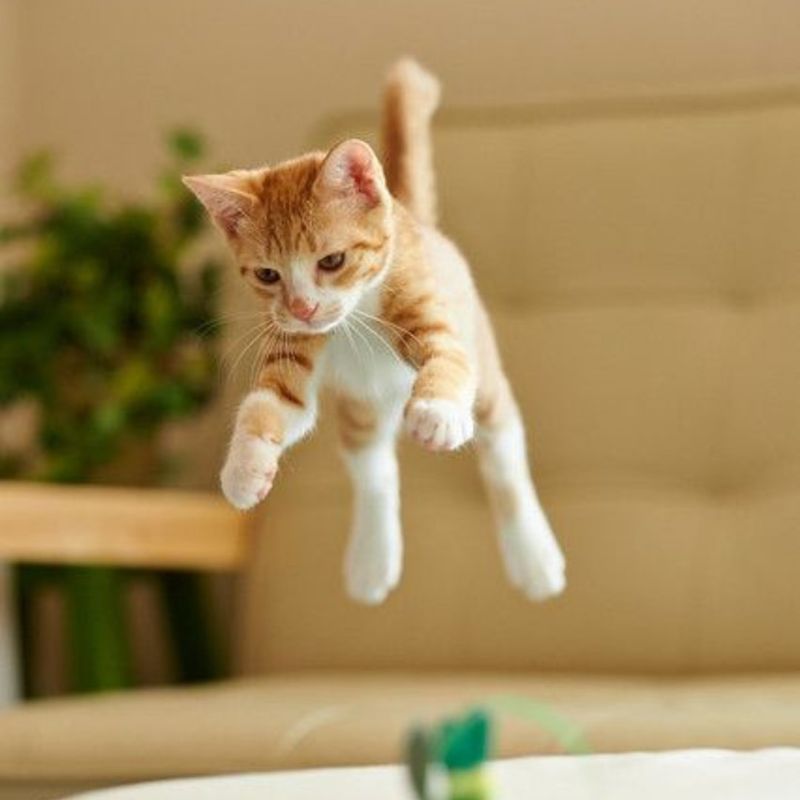
Cats are full of surprises, and their behavior can be unpredictable. One moment they’re purring contentedly, and the next, they’re knocking over a vase. This unpredictability can be charming but also frustrating.
Understanding a cat’s mood swings requires patience and observation. Their actions might seem random, but often there’s a reason behind their behavior. Learning to read your cat’s body language can help, but it takes time and effort.
For some, this unpredictability adds excitement to pet ownership. However, if you prefer a more predictable pet, a cat’s quirky nature might not align with your preferences. Owning a cat means embracing the unexpected, for better or for worse.
14. Feline Finickiness
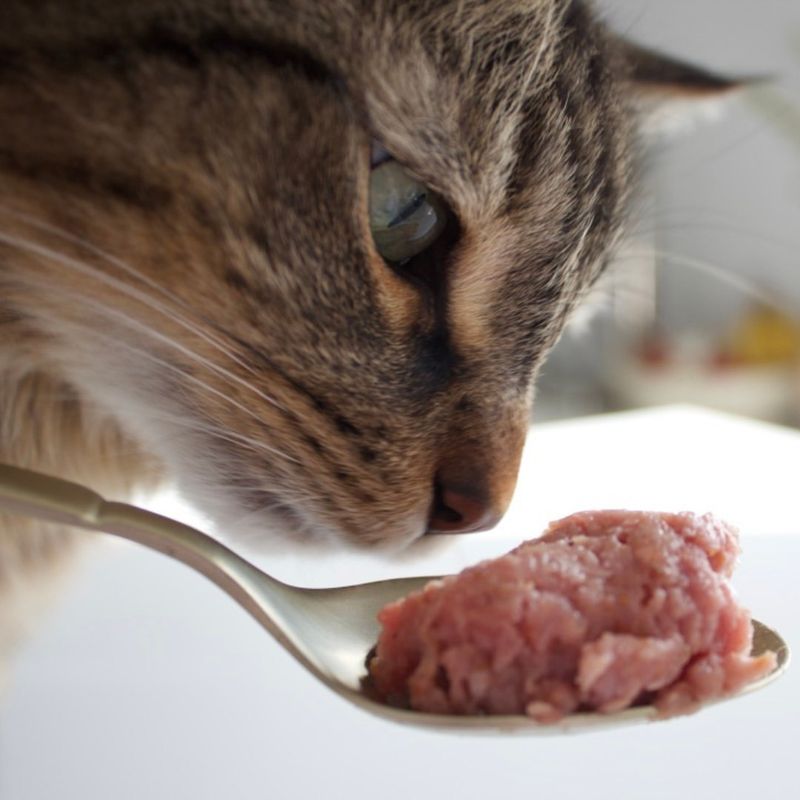
Cats are known for being finicky eaters, turning mealtime into a battle of wills. Finding a food they like can be a challenge, and their preferences might change overnight.
This finickiness isn’t just inconvenient; it can also be costly. You might end up buying and discarding various brands and flavors, trying to discover the elusive perfect meal. Additionally, sudden changes in diet can lead to digestive issues, adding another layer of complexity.
Moreover, some cats have specific dietary needs, requiring special food that might not be readily available. Meeting these requirements can be a logistical challenge. If you’re not ready to cater to a feline food critic, a cat’s dietary demands might be more than you bargained for.
15. Limited Social Interaction
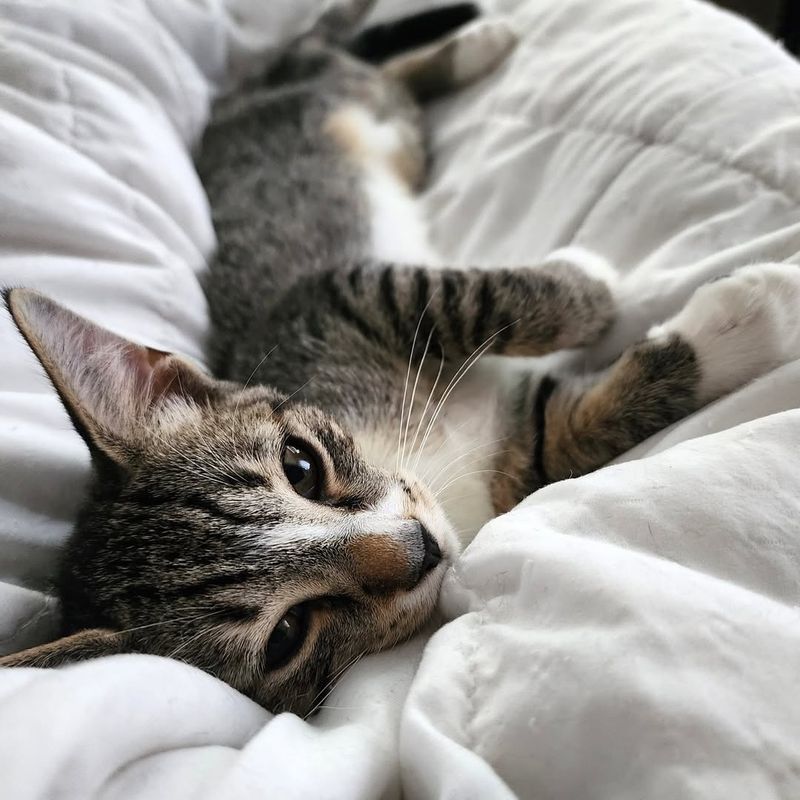
Unlike dogs, cats don’t always seek social interaction, preferring solitude to company. This can be disappointing for those seeking a pet that constantly craves attention.
While some cats are affectionate, many are content with their own company. They might come to you on their terms, enjoying a quick pet before retreating to their favorite spot. This independent streak can leave you feeling unappreciated or ignored.
If you’re looking for a pet that provides constant companionship, a cat might not fulfill that role. It’s important to understand and respect a cat’s boundaries, as pushing for more interaction can backfire. If you desire a socially engaging pet, a cat’s limited need for socialization might not be the ideal match.
16. Health Risks
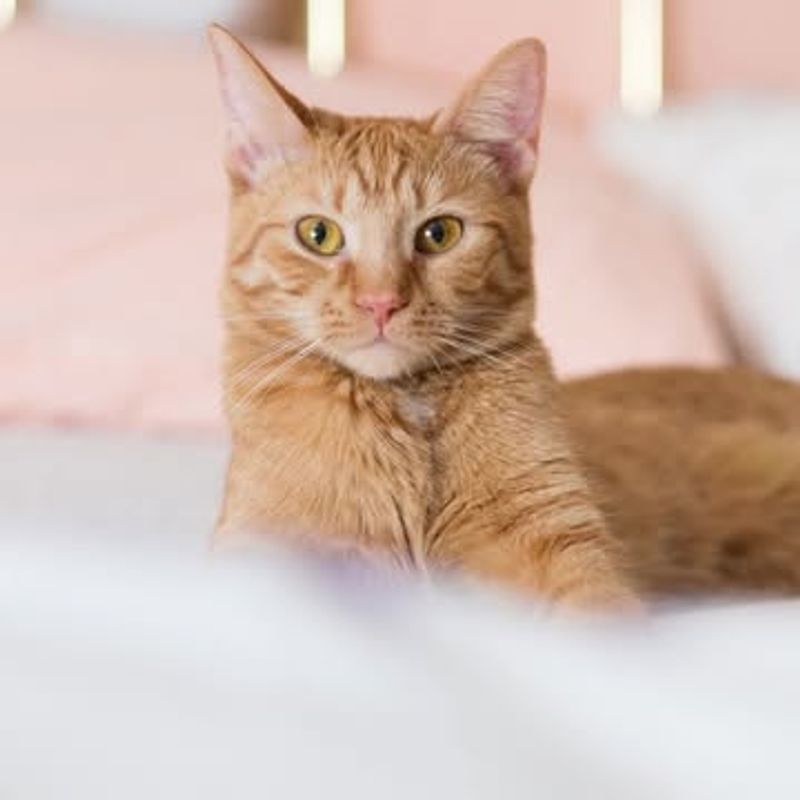
Cats can pose certain health risks, particularly for vulnerable individuals like pregnant women. Toxoplasmosis, a disease caused by a parasite found in cat feces, can be particularly concerning.
While the risk of contracting toxoplasmosis is low, it’s something to be aware of. Pregnant women are advised to avoid cleaning litter boxes, as the disease can cause complications during pregnancy. This requires extra caution and often the assistance of another household member.
Additionally, cats can carry fleas and ticks, leading to potential infestations in your home. Regular treatment and vigilance are necessary to keep these pests at bay. If you’re concerned about health risks, owning a cat might require more precautions than you’re prepared to handle.




